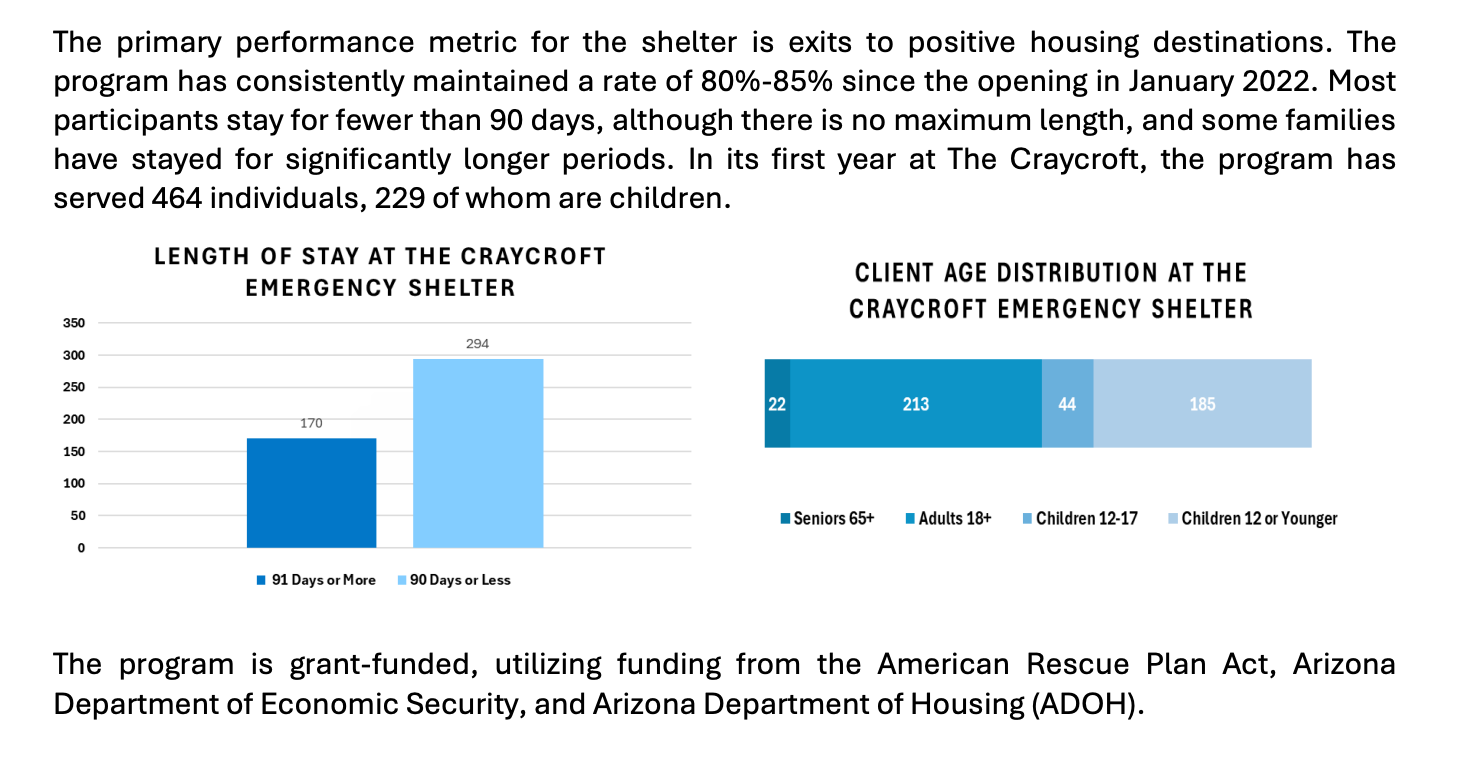Supervisors approve extension of Pima County's emergency eviction program
The Craycroft Shelter, formerly The Knights Inn, serves as a key component of the program, providing 67 rooms for families and individuals in need.

Pima County will extend its Emergency Eviction Legal Services program through June 2026.
The program has helped hundreds of vulnerable tenants avoid eviction and secure stable housing. The amendment to the program’s partnership with the City of Tucson passed last week by a vote of 4-1, with the lone “no” vote cast by Supervisor Steve Christy.
The county began funding emergency eviction assistance in 2021 through the COVID Cares Act. Since its launch, the Emergency Eviction Legal Services program has made a significant impact, with 61% of clients securing favorable legal outcomes.
The program focuses on eviction prevention by providing free legal counsel, assisting with court proceedings, and offering social services, including housing counseling, job assistance, and healthcare.
It also operates a low-barrier shelter with private rooms out of the city-owned Craycroft Shelter, which opened in October 2023. Since its inception, EELS has supported 464 individuals, including 229 children.
“The primary performance metrics for the shelter show an extraordinary success rate … since the opening in January 2022. Eighty to 85% of people who are in the shelter end up in what is described as positive housing destinations,” said Supervisor Rex Scott. “Surely there are some lessons learned at the Craycroft that we’re able to apply more broadly.”
Most participants stay for fewer than 90 days, but some families have stayed significantly longer, according to Scott.
He said that while the Craycroft Shelter serves a population that is often more stable than other unhoused individuals, its effective practices — including individualized support and case management — serve as a model that can help others find permanent housing.
The extension, which will be funded by $500,000 in grant funds, ensures the continued operation of the shelter and its services through June 2026. The grant will fund operational costs and essential improvements, such as security upgrades, including perimeter fencing and entry gates to ensure the safety of residents.

Emergency Eviction Legal Services has also expanded its support to include targeted rental assistance, funded by $2 million from the American Rescue Plan Act. This initiative aims to reduce eviction filings by offering expedited rent relief.
To date, $660,000 has been distributed to 183 households, with a cap of $5,000 per household for rent arrears and up to one month of prospective rent.
“One of the things we recognized very early on is that there was a group of folks who were acutely losing their housing stability because of the inability to pay rent. Those folks were often families with children,” said Pima County’s Chief Medical Officer Dr. Francisco Garcia. “We set up a program at that time specifically to address the needs of that group of people, as well as older vulnerable adults.”
The Craycroft Shelter, formerly The Knights Inn, serves as a key component of the program, providing 67 rooms for families and individuals in need. The shelter is designed to offer temporary housing with on-site services to help residents transition to stable housing.
In addition to housing, residents receive support from case management services and resources to address their individual needs, including access to healthcare, job training, and legal advice.
The success of the shelter and the EELS program has already led to increased funding and expanded services during its short tenure.
In 2024, the program received a $3.5 million grant from the Arizona Department of Housing to continue providing shelter and rehousing services. This funding will support operational costs, facility maintenance, and efforts to assist at least 75 more households in the coming year.
The ongoing expansion of the program is part of a broader regional strategy called the Prosperity Initiative that aims to reduce homelessness and combat generational poverty.
Current funding will keep the program running through June 2026, with county officials already working to identify funding to extend its operation beyond that, said County Administrator Jan Lesher.
Angelina Maynes is a journalism major at the University of Arizona and reporter with Tucson Spotlight. Contact her at angelinamaynes@arizona.edu.
Tucson Spotlight is a community-based newsroom that provides paid opportunities for students and rising journalists in Southern Arizona. Please support our work with a paid subscription.



